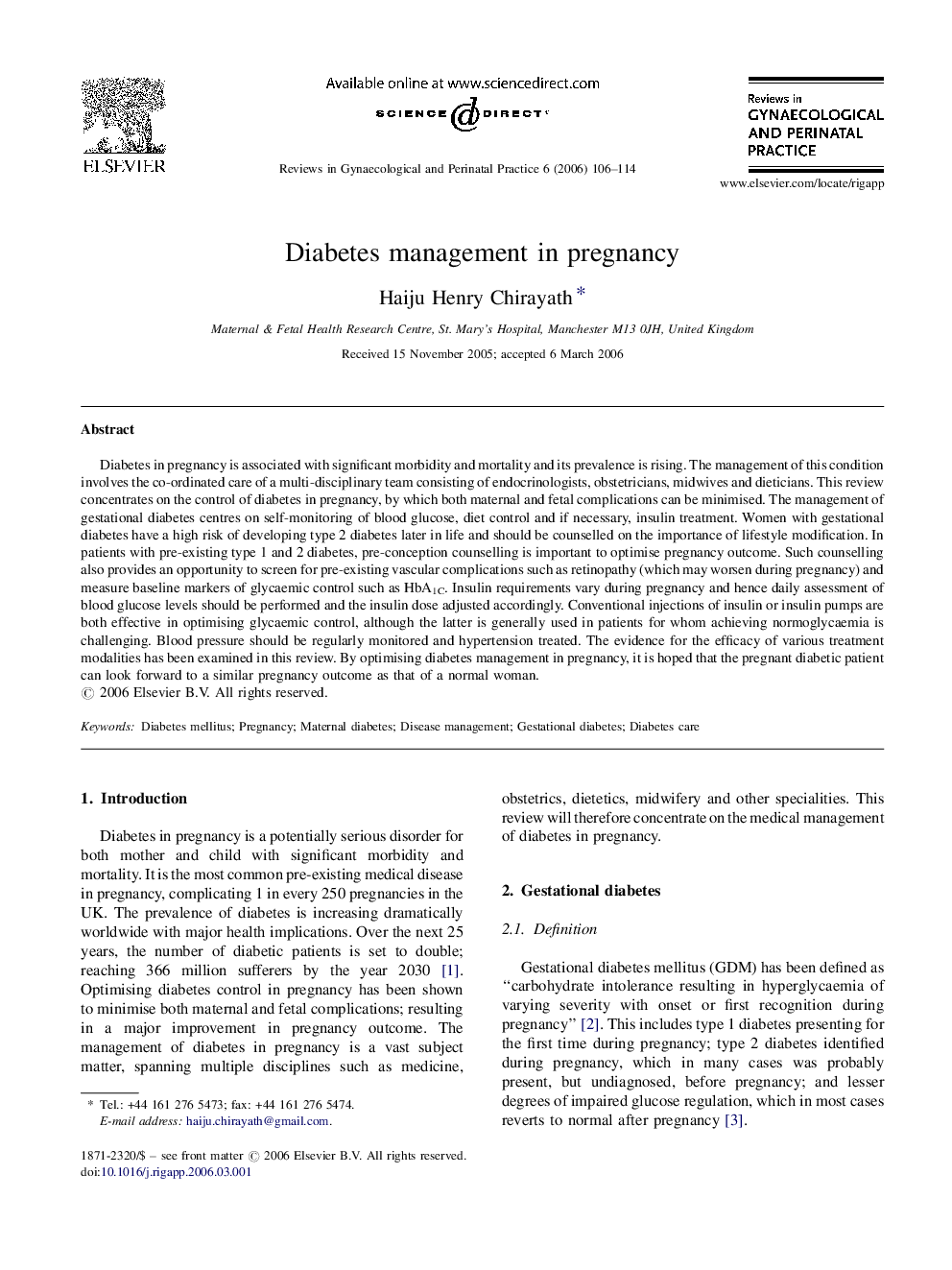| Article ID | Journal | Published Year | Pages | File Type |
|---|---|---|---|---|
| 3973719 | Reviews in Gynaecological and Perinatal Practice | 2006 | 9 Pages |
Diabetes in pregnancy is associated with significant morbidity and mortality and its prevalence is rising. The management of this condition involves the co-ordinated care of a multi-disciplinary team consisting of endocrinologists, obstetricians, midwives and dieticians. This review concentrates on the control of diabetes in pregnancy, by which both maternal and fetal complications can be minimised. The management of gestational diabetes centres on self-monitoring of blood glucose, diet control and if necessary, insulin treatment. Women with gestational diabetes have a high risk of developing type 2 diabetes later in life and should be counselled on the importance of lifestyle modification. In patients with pre-existing type 1 and 2 diabetes, pre-conception counselling is important to optimise pregnancy outcome. Such counselling also provides an opportunity to screen for pre-existing vascular complications such as retinopathy (which may worsen during pregnancy) and measure baseline markers of glycaemic control such as HbA1C. Insulin requirements vary during pregnancy and hence daily assessment of blood glucose levels should be performed and the insulin dose adjusted accordingly. Conventional injections of insulin or insulin pumps are both effective in optimising glycaemic control, although the latter is generally used in patients for whom achieving normoglycaemia is challenging. Blood pressure should be regularly monitored and hypertension treated. The evidence for the efficacy of various treatment modalities has been examined in this review. By optimising diabetes management in pregnancy, it is hoped that the pregnant diabetic patient can look forward to a similar pregnancy outcome as that of a normal woman.
